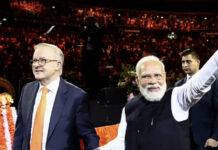 I have grown agitated in recent weeks at the prospect that the coronavirus lockdown may end. As a musician and writer my most valuable resource is time. Free of the need to drive through a city grown wide and congested due to decades of mass immigration, I have time to play Bach and Rachmaninov.
I have grown agitated in recent weeks at the prospect that the coronavirus lockdown may end. As a musician and writer my most valuable resource is time. Free of the need to drive through a city grown wide and congested due to decades of mass immigration, I have time to play Bach and Rachmaninov.
The shutdown is also a glitch in the Matrix. It has planted the seed in the minds of many normies that there is something terribly wrong with the world. The longer this lasts, the stronger the roots grow.
Another upside to the Chinese Coronavirus (Made in China) is that it may restrict the ability of migrant women to murder their unborn children. Actually, no, I take that back.
Anyway, it appears I am not the only one who doesn’t like the idea of a return to the daily commute and the boredom of the office.
From the Australian:
“We conducted a survey among our employees and partners last week – interestingly, it showed that only about 10 per cent of employees want to return to office full-time after the pandemic ends. A little over 20 per cent want to work remotely full-time. And a whopping 60 per cent opted for a combination of office and remote work.
“Naturally, Acronis being a global hi-tech company is ahead of the curve, but I think the trend is quite visible – it does make sense for companies employing large office workforce to be more flexible in their remote work strategy. This massive shift and rather sudden transformation of the traditional workspace into a remote one posed a number of fears, hopes and challenges for both employers and employees. But it’s also obvious, that remote work may not be possible with the current level of technological development at some companies – like production, healthcare, transportation and others.
“Traditional on-site companies are concerned about productivity or performance of the employees working outside the office, but the companies that operate partially or completely remotely see many benefits in such a mode. Gitlab, with its famously all-remote team of 1287 people working from 67 countries, say that driven individuals who highly value autonomy and flexibility can experience new levels of joy and productivity when working remotely. For employees, remote workspace means more flexibility in their daily lives, more family time and no stress commuting – which is especially true for large cities.“
I won’t give you any more cut and paste of this article which is full of corporate-speak, but there is enough information here for me to make some educated guesses.
I suspect that if you were to break down the numbers, more men than women would prefer to work from home. Generally, men are “driven individuals who highly value autonomy and flexibility”, while women are not. Generally, women require validation, and need to be led. The modern office provides this for women, at least on a superficial level.
For many men, the office is that thing you have to remind yourself not to burn down.
Spared the need to go to the already overly-feminised workplace, men may discover a new level of freedom, while working women may become increasingly desperate.
When people don’t come into the office, it limits the ability of SJW’s to control how people breath. You can’t invent fake sexual harassment drama if there are no men in the office to tease, then accuse.
More people working from home could reduce stress on our transport networks and reduce the value of commercial real estate. Naturally, the globalists will not like this. Under normal conditions, they would use the reduced stress on the transport networks to cram more people in, and artificially create more demand for said property, as has been their standard operational procedure for the last 30 years.
Shame about those closed borders.
The coronavirus has given us breathing space.



